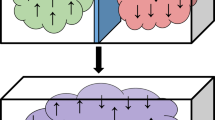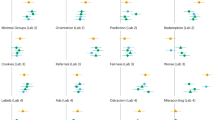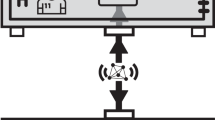Abstract
IN continuing to maintain that stringent experimental test of a theory of Nature is pedantic, Mr. Whitrow would appear to be more extreme in his views than are most of the contributors to the symposium on physical science and philosophy1. Prof. Milne, for example, states that “the relevance of the theorems to Nature would require to be established by observation”2. When Mr. Whitrow persists in claiming the support of Galileo3 on the grounds of his (Galileo's) profession of readiness to accept his own theories4, he displays an imperfect understanding of the nature of experimental demonstration.
This is a preview of subscription content, access via your institution
Access options
Subscribe to this journal
Receive 51 print issues and online access
$199.00 per year
only $3.90 per issue
Buy this article
- Purchase on Springer Link
- Instant access to full article PDF
Prices may be subject to local taxes which are calculated during checkout
Similar content being viewed by others
References
NATURE, 139, 1008 (1937).
NATURE, 139, 997 (1937).
NATURE, 140, 646 (1937).
Fahie, W. C., NATURE, 140, 646 (1937).
Fisher, R. A., “The Design of Experiments”, p. 39 ( Oliver and Boyd ).
Author information
Authors and Affiliations
Rights and permissions
About this article
Cite this article
CHILDS, E. The Function of Experiment. Nature 140, 852–853 (1937). https://doi.org/10.1038/140852b0
Issue Date:
DOI: https://doi.org/10.1038/140852b0
Comments
By submitting a comment you agree to abide by our Terms and Community Guidelines. If you find something abusive or that does not comply with our terms or guidelines please flag it as inappropriate.



